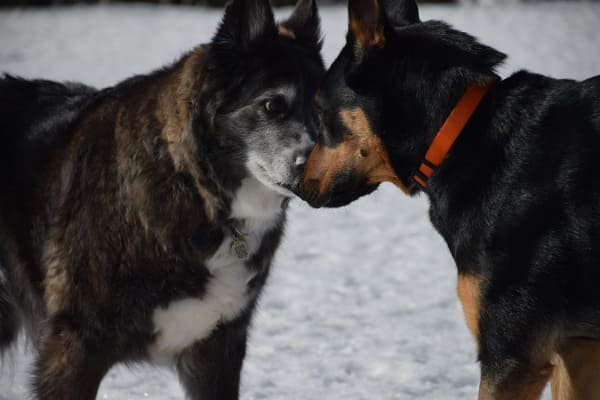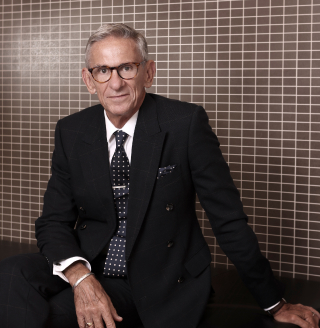No doubt the Russian president, Vladimir Putin, is an avid student of history. Wherever it was that he learned it, he certainly seems to know that, in a tense game of Cold War diplomacy, the minacious art of brinkmanship can often be absolutely everything.
The former KGB foreign intelligence officer was just a Leningrad school-boy back in 1962, when the Americans drew a line in the sand over Russian missiles in Cuba. At the time, a combat-weary world populace teetered precariously on the brink of a nuclear war. Fortunately for the West, the Russians blinked first. This time, things may be different.
No doubt the Russian president, Vladimir Putin, is an avid student of history. Wherever it was that he learned it, he certainly seems to know that, in a tense game of Cold War diplomacy, the minacious art of brinkmanship can often be absolutely everything.
The former KGB foreign intelligence officer was just a Leningrad school-boy back in 1962, when the Americans drew a line in the sand over Russian missiles in Cuba. At the time, a combat-weary world populace teetered precariously on the brink of a nuclear war. Fortunately for the West, the Russians blinked first. This time, things may be different.
The 1962 Cuban Missile Crisis began not unlike the current Ukraine confrontation.
Back then, the Russians had their collective nose out of joint over the deployment of American Jupiter ballistic missiles in Italy and Turkey, aimed at the USSR, not to mention the recent attempt by Cuban counter-revolutionaries, covertly financed and directed by the US government, to overthrow Cuba’s Marxist-Leninist leader, Fidel Castro, following the Cuban Revolution. The failed Bay of Pigs invasion of Cuba, authorised by American President Dwight D Eisenhower and orchestrated by the CIA, sent a powerful statement of intent to the Russians. In the face of such perceived Western aggression, when Castro asked the USSR to place nuclear missiles on Cuba to deter any further attempted US invasion, the Soviet First Secretary Nikita Krushev was all ears.
So, in the northern summer of ’62, construction began of launch facilities in Cuba, and the Russians started shipping ballistic missiles to the Caribbean island to arm them. When the Pentagon got wind of that, the US Generals all wanted their newly-elected president, John F Kennedy, to launch an immediate air strike on Cuba to stop the missile supplies, followed by an armed invasion of the Cuban mainland.
Fortunately, Kennedy wasn’t convinced. He knew such an attack would lead to all-out war with the USSR, and he opted for a more conservative strategy.
So Kennedy announced a US Naval “quarantine” on all further missiles being shipped to Cuba, and demanded those already there be dismantled and sent back to Russia. He was careful to use the word “quarantine,” and not “blockade,” which would connote a clear act of war, by legal definition. But the implication was clear.
For several days, the whole world held its breath as the two superpowers stood toe to toe in a terrible stand-off. Less than twenty years earlier the Second World War had wreaked indescribable havoc across the globe, but this time the conflict could be nuclear. Then, at the very last minute, the Soviet ships turned around.
Sixty years later, the Russians are again bemoaning Western aggression, this time on their own Eastern border. After the Soviet Union collapsed and Ukraine split from Mother Russia in 1991, the North Atlantic Treaty Organisation – a military alliance of Western European nations and the US – pushed eastward into the former soviet republics of Estonia, Latvia and Lithuania. By 2008, NATO was openly declaring its intention to some day also bring Ukraine under its banner. That was a red flag to Russia, and to its then Prime Minister Vladimir Putin, a nostalgic, Soviet-era sentimentalist who proudly and publicly proclaimed Russians and Ukrainians to be “one people.”
But most Ukrainians, it seems, felt differently about the good old days of the Soviet Union. When they made those feelings clear by staging mass protests in Kyiv in 2014, forcing out their pro-Russian president after he refused to sign an EU association agreement, Russia immediately hit back by annexing Crimea and encouraging a violent separatist rebellion which wrested control of the Donbas region in Ukraine’s east. That conflict has dragged on ever since, with an estimated 14,000 dead as a result, and more than a million displaced.
Just as Krushev saw the US in the 1960’s, today Putin clearly perceives the eastern expansion of what he believes is a US-led NATO to be a clear and present threat to his country. In the face of that perceived threat he has demanded that NATO guarantee it will never accept Ukraine into its fold, and that it reduce the extent of its military presence in Eastern and Central Europe to reduce the threat to Russia.
He says that’s only fair and reasonable.
“Are we deploying missiles near the US border?” he rhetorically asked a news conference late last year. “No, we are not. It is the United States that has come to our home with its missiles, and is already standing at our doorstep.”
And now Russia is standing at Ukraine’s doorstep.
It sounds a little like what President Kennedy said to Krushev sixty years ago. But, for now at least, neither the US nor any of its NATO allies is budging.
So, all those years after the world stepped back from the precipice, breathing a massive sigh of relief, now it finds itself standing with ten toes over the edge once again, as governments play the same dangerous game of brinksmanship.
The question is ‘Who will blink first?’













